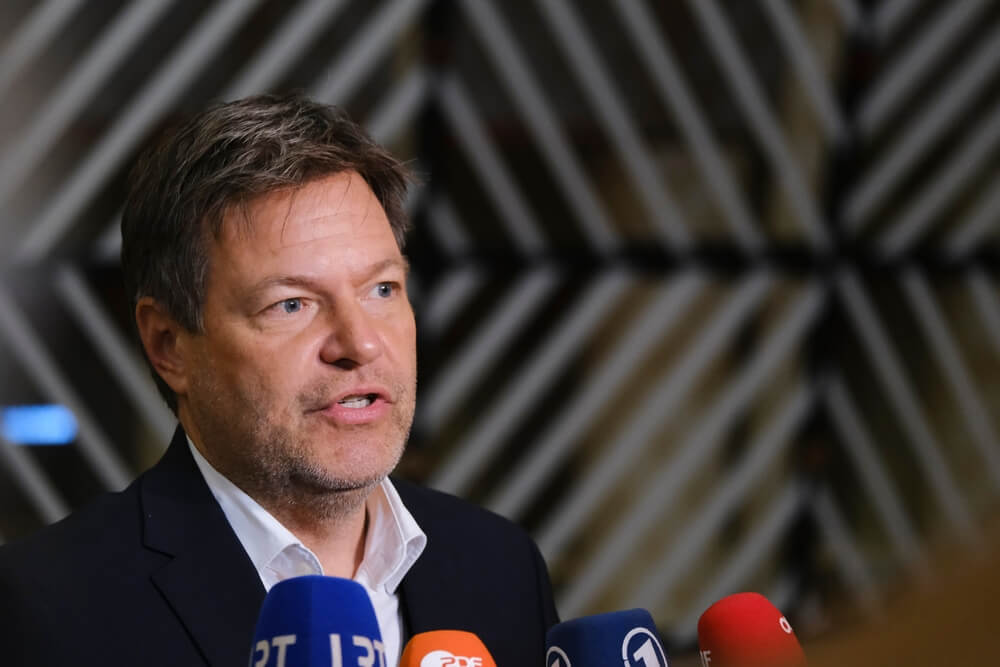The long-simmering disputes between Germany and some EU member states over excessive gas transit tariffs - which Germany has been using to cover holes in its energy budget—are putting pressure on the European Commission to resolve them.
The EU executive body will have to arbitrate in the dispute over German gas tariffs by the end of April. However, in formulating the answer, it will have to include more political than commercial logic.
Austria requested a statement from the European Commission (through its representatives in the European Parliament) on the legality of increased German tariffs on gas transit.
In 2023 alone, Austria spent €40 million more on tariffs for the supply of gas from Germany than in 2022.
Austria’s argumentation is partly economic because it points to illegal practices within the EU energy market, but at the same time, it is also political.
Excuses from Austria
Vienna indirectly accused Germany of making it harder for the Austrian market, which is still heavily dependent on imports from Russia, to diversify its supply by charging more for transportation.
Nearly all of Austria's gas consumption - almost 98% - comes from Russia, which is 20% higher than before the Russian invasion of Ukraine in February 2022, when the EU started to phase out Russian gas imports.
Austria is one of the few EU member states, along with Hungary, that has not chosen to end its reliance on Russian gas
Austria is one of the few EU member states, along with Hungary, that has not chosen to end its reliance on Russian gas. Moreover, it has increased its imports in the meantime.
The excuses coming from Vienna mainly boil down to the fact that the costs of transition to other suppliers are high for the Austrian population, as well as the fact that Austria is a landlocked country without the possibility to develop LNG terminals like Germany and Italy.
Bad legacy of previous governments
However, the root of Austria's still high dependence on gas imports from Russia lies in the decisions of a series of previous governments, which were favourable towards doing business with Russian energy companies.
The current contract with Russia on the import of gas was concluded in 2018 and guarantees much lower prices than the alternatives offered by imports from Germany.
But the contract will last until 2040, which Austria uses as a justification for its slow transition to alternative suppliers. The EU has been committed to reducing gas imports from Russia to zero by 2027, but Austria could hardly meet that criterion.
If it decided to terminate the contract signed by the energy company OMV and Russia's Gazprom in 2018 before its expiration, Austria would have to pay the Russians around €1 billion.
Last February, Austrian Energy Minister Leonore Gewessler cautiously announced plans for an earlier exit from the contract with Russia's Gazprom as a step towards a faster reorientation of the country to non-Russian sources of gas supply.
Austria's hands have been tied by the decisions of previous governments, which were happy to enter into business with Russian energy companies
However, one should not be too optimistic about the announcements of the minister from the Green Party, because such a decision carries too many risks ahead of the parliamentary elections that will be held in the autumn.
The government's plans will face strong political opposition, which warns that even a phased reorientation of the economy and population to non-Russian gas would mean a significant increase in costs.
Therefore, Austria's hands have been tied by the decisions of previous governments, which were happy to enter into business with Russian energy companies, while many of their high-ranking officials nurtured close relations with the Kremlin.
Germany owes more convincing arguments
That is why the pressure on Germany to reduce tariffs comes as one possible solution to ease the economic and political predicament, in which Austria cannot meet European obligations without financial pressure on the domestic population and economy.
Germany rejected Austria's objections that its higher gas tariffs on transit have been torpedoing efforts to get out of dependence on Russian sources.
Its energy ministry stated there was no justification for staying in gas arrangements with Russia and that German transit tariffs were not an obstacle to trade between gas markets within the EU.
 Germany will have to address the European Commission with more convincing arguments - Economy minister Robert Habeck
Germany will have to address the European Commission with more convincing arguments - Economy minister Robert Habeck
However, Germany will have to address the European Commission with more convincing arguments, because the fact is that with increased gas tariffs, it has been trying to compensate for the financial gap of billions of euros caused by filling its warehouses in 2022, when the prices were the highest.
In addition to Austria, other German neighbours, the Czech Republic, Hungary, and Slovakia, have been seeking tariff reductions, saying that high gas prices from Germany have been obstructing them from implementing the agreed transition to non-Russian sources.
Italy has also given up plans to increase transit tariffs, awaiting the resolution of the dispute between Germany and its surrounding economies.